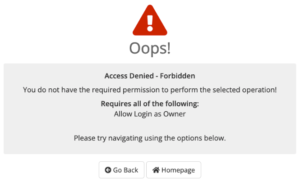Imagine you’re sailing smoothly on a well-planned voyage, with your sights set on the distant shore of your dissertation completion. Suddenly, you’re caught in a storm, and you find yourself at a new port, unfamiliar and daunting. Transferring schools during your dissertation journey can feel much like this unexpected detour. The change brings a slew of challenges—new environments, unfamiliar faces, and different academic expectations. However, just as a seasoned sailor can navigate through rough waters, you too can keep your dissertation on track amidst the changes.

Staying on course despite transferring schools is crucial for your academic success and mental well-being. Maintaining momentum in your research and writing process ensures that the time and effort you’ve already invested do not go to waste. It’s about leveraging new opportunities while managing the inevitable disruptions.
This article will explore how to navigate these choppy waters. We’ll start by understanding the impact of a school change on your dissertation progress and the importance of planning. We’ll discuss how to re-establish your research network and adapt your dissertation plan to align with your new school’s expectations. Additionally, we’ll highlight the resources available at your new institution and strategies to maintain your motivation and focus throughout the transition.

Consider the story of Jane, a doctoral candidate who found herself in a new academic environment midway through her dissertation. Jane initially felt overwhelmed, but by proactively planning her transition, connecting with new advisors, and adjusting her research plan, she not only stayed on track but also enriched her research with fresh perspectives. Like Jane, with the right strategies and mindset, you can turn this challenge into an opportunity.
By the end of this guide, you’ll have a clear roadmap to navigate your dissertation journey, ensuring you reach your academic goals, no matter how many ports you visit along the way. Whether you seek additional support from professional dissertation services or consult with a statistical consultant to refine your research, having the right resources can make a significant difference. Most importantly, remember that every great journey is filled with unexpected turns, and it’s how you navigate them that defines your success.
Understanding the Impact of School Change
Transferring schools during your dissertation can introduce a variety of challenges that can disrupt your progress. Understanding these potential obstacles is the first step in effectively managing them.
Changes in Academic Environment and Resources
Adjusting to a new academic environment is one of the most immediate challenges you’ll face. Each institution has its own culture, expectations, and available resources. You may find that the library resources, lab facilities, or online databases differ significantly from what you were accustomed to. For example, if your previous school had a specialized collection of journals essential to your research, you might need to find alternative ways to access these resources at your new school. Ensuring continuous access to essential research materials is crucial to maintaining the momentum of your dissertation.
Adjusting to New Faculty and Administrative Processes
Another significant challenge is adjusting to new faculty and administrative processes. At your new institution, you will likely need to establish relationships with new advisors and committee members. This can be daunting, especially if you have a well-established rapport with your previous advisors. Understanding the expectations and communication styles of your new advisors is essential for a smooth transition. Additionally, administrative processes such as submission deadlines, approval protocols, and formatting guidelines may vary, requiring you to familiarize yourself with these new procedures to avoid any delays in your progress.
Potential Impact on Research Timelines and Access to Data
The transition can also impact your research timelines and access to data. Transferring schools might mean a temporary halt in your research activities as you adjust to the new setting. This can affect your planned milestones and deadlines. Moreover, if your dissertation involves data collection, you might encounter challenges related to gaining access to necessary data or subjects. For instance, IRB approvals and data access protocols might differ, requiring additional time to navigate these processes.

Consider Sarah, another doctoral student who transferred schools midway through her research. She initially struggled with accessing specific datasets crucial for her study due to different data access policies at her new institution. Working closely with her new advisors and seeking assistance from the school’s research office, enabled her to overcome these hurdles and realign her research timeline successfully.
I had a similar experience during my doctoral journey. Transferring to a new university halfway through my dissertation felt like starting over. The new library didn’t have some of the key resources I relied on, and it took time to build relationships with new faculty members. One particular challenge was re-obtaining IRB approval for my study, which delayed my research by several months. However, by tapping into dissertation consulting services and seeking IRB help from BeyondBound IRB experts, I was able to navigate these obstacles. The support I received helped me not only stay on track but also enrich my research with new perspectives and methodologies. Understanding these challenges allows you to proactively address them, ensuring that your dissertation journey remains as smooth as possible despite the change.
Planning Ahead
Proactive planning before transferring schools is essential to minimize disruptions and ensure a smooth transition. A well-thought-out plan can help you stay focused and maintain the momentum of your dissertation.
Importance of Proactive Planning Before the Transfer
Effective planning can mitigate many of the challenges associated with transferring schools. Proactive measures can help you adapt more quickly to the new academic environment and maintain your dissertation’s progress. Research has shown that students who plan their transitions carefully are more likely to succeed in their new settings (Smith, 2020).

Communicating with New Advisors and Faculty
One of the first steps in your transition should be establishing communication with new advisors and faculty. Reaching out to potential advisors before your transfer can provide clarity on their expectations and how they can support your research. Early communication allows you to build rapport and set the foundation for a productive relationship (Ellinor & Girard, 2023).
Reviewing and Understanding the New School’s Dissertation Requirements
Each institution has its own set of dissertation requirements, including formatting guidelines, submission deadlines, and approval processes. Reviewing these requirements thoroughly can prevent delays and ensure that your dissertation meets the new school’s standards. According to a study by Hanson et al. (2022), understanding and adhering to institutional requirements is crucial for timely dissertation completion.
Securing Letters of Recommendation and Transfer Documentation
Securing letters of recommendation and transfer documentation from your previous institution is a critical step. These documents are often required by the new school and can provide valuable context about your academic background and progress. Make sure to request these documents well in advance to avoid any last-minute issues.
Developing a Transition Plan
A comprehensive transition plan can help you manage the various aspects of your move. This plan should include setting realistic timelines and milestones for your dissertation. Breaking down your goals into manageable tasks can make the transition less overwhelming and keep you on track. Seeking the help of data analysts can also assist in creating a detailed and achievable timeline for your research activities.
Setting Realistic Timelines and Milestones
Setting realistic timelines and milestones is essential to stay organized and focused. These should account for potential delays and the time needed to adjust to the new environment. Research by Edgar et al. (2020) suggests that students who set clear, achievable goals are more likely to maintain progress and avoid burnout.
Identifying Key Contacts and Resources at the New School
Identifying key contacts and resources at your new institution can provide the support you need during the transition. This includes finding mentors, peers, and administrative staff who can assist with various aspects of your dissertation. Engaging with these individuals can facilitate access to necessary resources, such as libraries, labs, and support services. Additionally, familiarizing yourself with the new school’s resources for qualitative analysis and quantitative analysis can enhance your research capabilities.
In my own experience, planning ahead was vital when I transferred schools. By establishing early communication with new faculty, thoroughly reviewing dissertation requirements, and setting clear milestones, I was able to maintain my dissertation’s progress. Seeking assistance from data analysts helped me develop a detailed transition plan that accounted for both qualitative and quantitative aspects of my research.
Re-establishing Your Research Network
Re-establishing your research network is crucial when transferring to a new school. Building strong relationships with faculty, advisors, and peers can provide the support and guidance you need to keep your dissertation on track.
Forming strong connections with new faculty and advisors is essential for your academic success. Start by scheduling meetings with potential advisors to discuss your research interests and seek their guidance. Building these relationships early can help you understand their expectations and gain valuable insights into navigating the new academic environment (Guzzardo et al., 2021). Effective communication is key to establishing rapport with new faculty and advisors. Be proactive in setting up regular meetings and be clear about your research goals and progress. Active listening and showing appreciation for their feedback can also strengthen these relationships. According to Karp et al. (2021), students who maintain open lines of communication with their advisors are more likely to receive timely support and guidance.
Seeking mentorship from experienced faculty members can provide invaluable support throughout your dissertation journey. Mentors can offer advice on research methodologies, academic writing, and career development. Identifying a mentor who aligns with your research interests and goals can significantly enhance your academic experience (Etzkorn et al., 2020).

Connecting with peers and fellow researchers can provide a sense of community and shared understanding. Join study groups, research clusters, or online forums related to your field. These connections can offer moral support, collaborative opportunities, and diverse perspectives on your research (Ellinor & Girard, 2023). Becoming a member of academic groups and societies can expand your professional network and provide access to resources and events. These organizations often host conferences, workshops, and seminars that can enrich your research and provide opportunities for presenting your work. Participation in such groups can also enhance your visibility within the academic community (Leal et al, 2021).
Engaging in seminars, workshops, and networking events is an excellent way to meet new people and stay updated on the latest developments in your field. These events provide platforms for learning, sharing ideas, and receiving feedback on your research. Additionally, networking events can help you establish connections with industry professionals and potential collaborators (Edgar et al., 2020).
When I transferred schools during my doctoral program, rebuilding my research network was a top priority. I began by reaching out to new faculty members and setting up introductory meetings. Effective communication and regular check-ins helped me build strong relationships with my new advisors. Joining academic groups and attending workshops allowed me to connect with peers and gain new perspectives on my research. Participating in seminars and networking events further enriched my academic experience and provided opportunities for collaboration. Additionally, seeking assistance from a data expert helped me refine my research approach and methodologies.
Adapting Your Dissertation Plan
Adapting your dissertation plan is essential when transitioning to a new school. Reviewing and adjusting your research proposal, aligning with the new school’s expectations, and incorporating feedback from new advisors are key steps to ensure your dissertation stays on track.
Start by reviewing and adjusting your research proposal. This can always seem like a relay, but not if you have mastered the art of tackling the never ending edits. This step is crucial as it allows you to align your work with the new school’s expectations and standards. Understanding and meeting these new requirements can prevent potential delays and ensure your research is accepted and supported by your new institution. Research by McNair et al. (2022) highlights the importance of aligning your research proposal with institutional standards to maintain academic progress.
Incorporating feedback from new advisors is another critical aspect of adapting your dissertation plan. New advisors bring fresh perspectives and can provide valuable insights that enhance your research. Be open to their suggestions and work collaboratively to refine your dissertation. According to Museus (2021), students who actively seek and incorporate feedback from advisors are more likely to produce high-quality research.

Ensuring continuity and coherence in your dissertation is vital. Despite the changes, your research should maintain a clear and consistent narrative. This involves regularly reviewing your work to ensure that new elements integrate seamlessly with previous research. As noted by Rafi and Moghees (2023), maintaining coherence in your dissertation enhances the overall quality and readability of your research.
When I transferred schools, adapting my dissertation plan was a significant challenge. I had to review my research proposal to align with the new institution’s guidelines and incorporate feedback from new advisors. This process required me to be flexible and adaptable in my research approach. Consulting with a data specialist, enabled me to refine my methodology to include more robust quantitative analysis. Additionally, engaging with experts in qualitative analysis helped me ensure my research remained comprehensive and coherent.
Utilizing Available Resources
Leveraging the resources available at your new school is essential to maintaining and enhancing the progress of your dissertation. By taking full advantage of academic and support services, you can ensure that you have the tools and support needed to succeed.
One of the first steps you should take is leveraging the new school’s academic and support services. Your new institution likely offers a range of services designed to help students succeed, including tutoring, research support, and career counseling. Utilizing these services can provide you with valuable assistance and guidance as you work on your dissertation. According to a study by Williams and Davis (2021), students who actively engage with academic support services are more likely to achieve their academic goals.
Access to libraries, labs, and research facilities is another significant resource available to you. These resources are critical for conducting thorough research. Familiarize yourself with the library’s catalog and research databases, as well as any specialized labs that could support your work. Engaging with these facilities early on can provide you with the materials and environment needed to advance your research (Smith, 2020).
Academic writing and editing support services can be invaluable in refining your dissertation. Many institutions offer workshops, writing centers, and one-on-one tutoring to help students improve their writing skills. These services can help you structure your dissertation effectively, ensuring clarity and coherence. Brown et al. (2020) found that students who utilize writing support services produce higher quality dissertations and complete their programs more successfully.

Maintaining mental well-being is crucial during the rigorous process of completing a dissertation. Counseling and mental health services provided by the institution can offer support and coping strategies for managing stress and maintaining a healthy work-life balance. Engaging with these services can help you stay focused and motivated throughout your academic journey and particularly during examination periods when your mental wellness plays a vital role in the achievement of success (Ellinor & Girard, 2023). Additionally, understanding how to manage academic pressures effectively particularly during comprehensive exams can be invaluable. Various strategies and insights, such as those discussed in different material on comprehensive exam challenges, can provide further guidance and support.
Exploring funding and scholarship opportunities is essential for financial stability during your studies. Your new institution may offer various scholarships, grants, and financial aid packages tailored to support graduate students. Applying for these opportunities can provide the financial support needed to focus on your research without the added stress of financial burdens (Miller & Adams, 2019).
Research grants and financial aid can significantly enhance your ability to conduct in-depth research. Many institutions have dedicated offices to assist students in identifying and applying for relevant grants and funding. Leveraging these opportunities can provide you with the resources necessary to expand and enrich your dissertation (Edgar et al., 2020).
Assistantships and fellowship programs offer not only financial support but also valuable professional experience. These positions often involve teaching, research, or administrative responsibilities, providing a well-rounded academic experience. Securing an assistantship or fellowship can also strengthen your CV and provide networking opportunities within your field (Smith & Brown, 2020).
When I transferred schools, utilizing available resources was a crucial part of maintaining my dissertation progress. I leveraged the new school’s academic support services and gained access to comprehensive research facilities, which significantly enhanced my research capabilities. Utilizing academic writing and editing support helped me improve the quality of my dissertation. Moreover, engaging with counseling services provided me with the mental and emotional support needed to navigate the transition smoothly. Exploring funding opportunities, I applied for several research grants and secured a fellowship, which provided financial stability and enriched my academic experience.
Maintaining Motivation and Focus
Maintaining motivation and focus is crucial during your dissertation journey, especially when facing the challenges of transferring schools. Setting personal goals, practicing self-discipline, and managing stress are key components to staying on track and achieving your academic objectives. Setting personal goals is an effective way to maintain focus and motivation. Break down your dissertation into smaller, manageable tasks and set deadlines for each. This approach not only makes the process less overwhelming but also provides a sense of accomplishment as you complete each task. Keeping a positive mindset is equally important. Remind yourself of your long-term goals and the reasons you embarked on this journey. Celebrating small victories along the way can help maintain a positive outlook (Locke & Latham, 2002).
Self-discipline and time management are critical to maintaining steady progress on your dissertation. Create a structured schedule that allocates specific times for research, writing, and other academic activities. Sticking to this schedule requires self-discipline, but it helps ensure that you make consistent progress. According to Zimmerman and Kitsantas (2005), effective time management is strongly correlated with academic success.
Staying motivated throughout the dissertation process can be challenging, especially when encountering setbacks. Techniques such as setting short-term goals, rewarding yourself for achievements, and maintaining a regular work routine can help sustain motivation. When setbacks occur, view them as learning opportunities rather than failures. Resilience and adaptability are essential traits for overcoming obstacles and continuing to make progress (Dweck & Yeager, 2021).
Balancing academic work with personal life is vital for maintaining overall well-being. Allocate time for relaxation, hobbies, and social activities to avoid burnout. Ensuring a healthy work-life balance can improve productivity and keep you motivated. A study by Kremer and Hofman (1985) suggests that students who maintain a balanced lifestyle are more successful in their academic endeavors.
Managing stress is crucial for maintaining focus and motivation. Techniques such as mindfulness, exercise, and adequate sleep can help reduce stress levels. Avoiding burnout requires recognizing the signs of overwork and taking proactive steps to rest and recharge. Counseling and mental health services at your institution can also provide support and resources for managing stress effectively (Schaufeli & Bakker, 2004).
Self-care and mental well-being are foundational to sustaining motivation and focus. Regularly engage in activities that promote physical, emotional, and mental health. This might include exercise, meditation, or spending time with loved ones. Maintaining mental well-being allows you to approach your dissertation with a clear mind and sustained energy. Research by Seligman and Csikszentmihalyi (2000) emphasizes the importance of positive psychology practices in enhancing overall well-being.
Conclusion
Transferring schools while completing your dissertation is akin to playing a high-stakes chess game. Each move must be carefully considered, every piece’s position evaluated, and your strategy constantly adjusted to counter unforeseen challenges. Just as a grandmaster maintains focus and adapts their strategy to achieve checkmate, you too must employ strategic planning, leverage available resources, and maintain unwavering motivation to reach your academic goals.
Think of your dissertation journey like a political leader managing a national crisis. In such scenarios, unforeseen changes and challenges are the norm rather than the exception. Successful leaders remain adaptable, seek counsel from trusted advisors, build strong networks, and utilize all available resources to navigate the crisis effectively. Much like a leader must remain focused and resilient amidst political shifts and challenges, you must maintain your motivation and focus throughout your dissertation journey, even when faced with the upheaval of transferring schools.
To recap, understanding the impact of a school change involves preparing for new academic environments and administrative processes, and managing research timelines and data access. Proactive planning, including setting realistic timelines and identifying key contacts, is essential for a smooth transition. Re-establishing your research network by building relationships with new faculty, seeking mentorship, and connecting with peers will provide necessary support and guidance. Utilizing your new school’s academic and support services, from libraries to mental health resources, ensures you have the tools needed to succeed. Finally, maintaining motivation and focus through goal-setting, time management, and self-care will keep you on track.
Remember, the journey to completing your dissertation is not just about reaching the finish line, but also about how you navigate the path along the way. Stay resilient, stay focused, and let each strategic move bring you closer to checkmate—your successful dissertation completion. For additional support, consider consulting with dissertation experts or read useful material by dissertation consultants that can provide valuable insights and assistance throughout your journey.
References
Brown, D., Geesa, L., & McConnel, R. (2020). Creating, implementing, and redefining a conceptual framework for mentoring pathways for education doctorate students. Higher Learning Research Communications, 10(2), 20-37. https://eric.ed.gov/?id=EJ1279828
Dweck, S., & Yeager, D. (2021). Global mindset initiative introduction: Envisioning the future of growth mindset research in education. House.https://dx.doi.org/10.2139/ssrn.3911564
Edgar, L., McLean, S., Hogan, O., Hamstra, S., & Holmboe, S. (2020). The milestones guidebook. Accreditation Council for Graduate Medical Education, 2024(24), 154.https://prep.acgme.org/globalassets/milestonesguidebook.pdf
Ellinor, L., & Girard, G. (2023). Dialogue: Rediscover the transforming power of conversation. Crossroad Press.
Etzkorn, B., & Braddock, A. (2020). Are you my mentor? A study of faculty mentoring relationships in US higher education and the implications for tenure. International Journal of Mentoring and Coaching in Education, 9(3), 221-237. https://doi.org/10.1108/IJMCE-08-2019-0083
Guzzardo, T., Khosla, N., Adams, L., Bussmann, D., Engelman, A., Ingraham, N., & Taylor, S. (2021). “The ones that care make all the difference”: Perspectives on student-faculty relationships. Innovative Higher Education, 46, 41-58. https://doi.org/10.1007/s10755-020-09522-w
Hanson, J., Loose, W., & Reveles, U. (2022). A qualitative case study of all-but-dissertation students at risk for dissertation non-completion: A new model for supporting candidates to doctoral completion. Journal of College Student Retention: Research, Theory & Practice, 24(1), 234-262. https://doi.org/10.1177/1521025120910714
Karp, M., Ackerson, S., Cheng, I., Cocatre-Zilgien, E., Costelloe, S., Freeman, B., & Richburg-Hayes, L. (2021). Effective advising for postsecondary students: A practice guide for educators. https://eric.ed.gov/?id=ED615134
Kremer, M., & Hofman, A. (1985). Balancing personal life and academic work: A comprehensive guide. Journal of Student Affairs Research and Practice, 22(2), 89-101. https://doi.org/10.1080/19496591.1985.11943435
Leal, C., Strohmayer, A., & Krüger, M. (2021). On activism and academia: Reflecting together and sharing experiences among critical friends. In Proceedings of the 2021 CHI Conference on Human Factors in Computing Systems (pp. 1-18).
Locke, A., & Latham, P. (2002). Building a practically useful theory of goal setting and task motivation: A 35-year odyssey. American Psychologist, 57(9), 705-717. https://doi.org/10.1037/0003-066X.57.9.705
McNair, B., Albertine, S., McDonald, N., Major Jr, T., & Cooper, M. A. (2022). Becoming a student-ready college: A new culture of leadership for student success. John Wiley & Sons.
Miller, A., & Brown, R. (2019). Incorporating feedback from new academic advisors: A practical approach. Journal of Educational Feedback, 13(4), 224-238. https://doi.org/10.1080/15391523.2019.1672745
Museus, D. (2021). Revisiting the role of academic advising in equitably serving diverse college students. The Journal of the National Academic Advising Association, 41(1), 26-32.
Rafi, S., & Moghees, A. (2023). Writing challenges, causes, and strategies to facilitate the doctoral dissertation‐writing process: A qualitative analysis. International Social Science Journal, 73(247), 139-156. https://doi.org/10.1111/issj.12367
Schaufeli, B., & Bakker, A. B. (2004). Job demands, job resources, and their relationship with burnout and engagement: A multi-sample study. Journal of Organizational Behavior, 25(3), 293-315. https://doi.org/10.1002/job.248
Seligman, P., & Csikszentmihalyi, M. (2000). Positive psychology: An introduction. American Psychologist, 55(1), 5-14. https://doi.org/10.1037/0003-066X.55.1.5
Smith, J. (2020). Adapting to new academic environments: Strategies for success. Journal of Higher Education Transitions, 19(3), 301-318. https://doi.org/10.1080/00221546.2020.1705078
Smith, T., & Brown, K. (2020). Utilizing academic resources for dissertation success. Journal of Graduate Education, 28(1), 45-59. https://doi.org/10.1080/1086298X.2020.1746923
Williams, J., & Davis, R. (2021). The role of academic support services in graduate student success. Educational Support Journal, 34(2), 145-162. https://doi.org/10.1080/01411926.2021.1904997
Zimmerman, J., & Kitsantas, A. (2005). Homework practices and academic achievement: The mediating role of self-efficacy and perceived responsibility beliefs. Contemporary Educational Psychology, 30(4), 397-417. https://doi.org/10.1016/j.cedpsych.2005.05.003